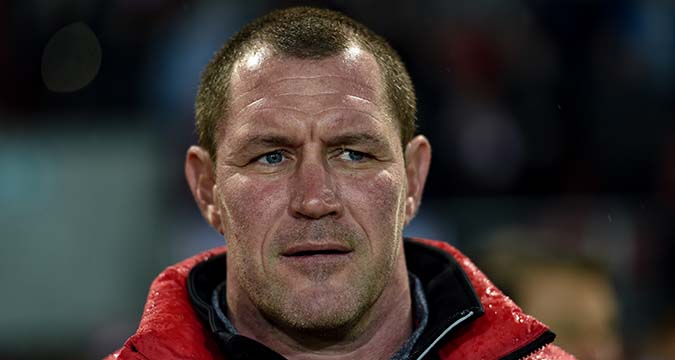
Kristian Woolf has called on the Rugby League community to support Tonga and its players following the tsunami which hit the islands last weekend.
An eruption of an undersea volcano caused a huge tsunami to hit the country and there has been little communication since from Tonga.
Only three deaths have been officially confirmed so far as Tongans around the world face an agonising wait for news of their loved ones.
St Helens boss Wolff, who has been head coach of the Tongan national team since 2014, said the country was in his thoughts and prayers.
“It is a really sad circumstance, a really tragic circumstance, what has happened in Tonga,” he said.
“All we can do at the moment with the lack of information and the lack of communication that’s coming out of there is have all the people of Tonga in our thoughts and have them heavily in our thoughts and our prayers.
“I really hope that people do come through. While we understand there’s going to be a lot of devastation, we certainly hope there’s not a large loss of life.
“I know that Australia and New Zealand are starting to get some support in there and that’s great, it means that there is going to be a little bit more communication.
“After everything is assessed, I certainly hope that with the presence of Tonga and the Rugby League community and the number of Tongan players, Rugby League does what it does best and that’s come together and find ways to support those players and support the kingdom of Tonga.
“One thing I do know is that Tonga is full of very tough people and very strong people, and they will pull together and they will come through it. That’s what they’ve done plenty of times
before.”
Woolf also commended the three Tongan players in his Saints squad – Konrad, Will Hopoate and Agnatius Paasi – all of whom are waiting for news.
He said: “They’ve all dealt with it exceptionally well. I say that because it’s a really tough circumstance for them knowing that there’s a tragic situation and not being able to have any contact whatsoever with their family.
“From their point of view the unknown is the worst part of it, hoping and praying and wishing but not really knowing what’s going on.
“I know they’ve got a lot in their minds and I know they’ve got a lot of worries but they’ve been able to come into work, come to training, put a smile on their faces, train really well and put that aside.
“I’m sure they’re thinking about it very heavily once they get home.”
